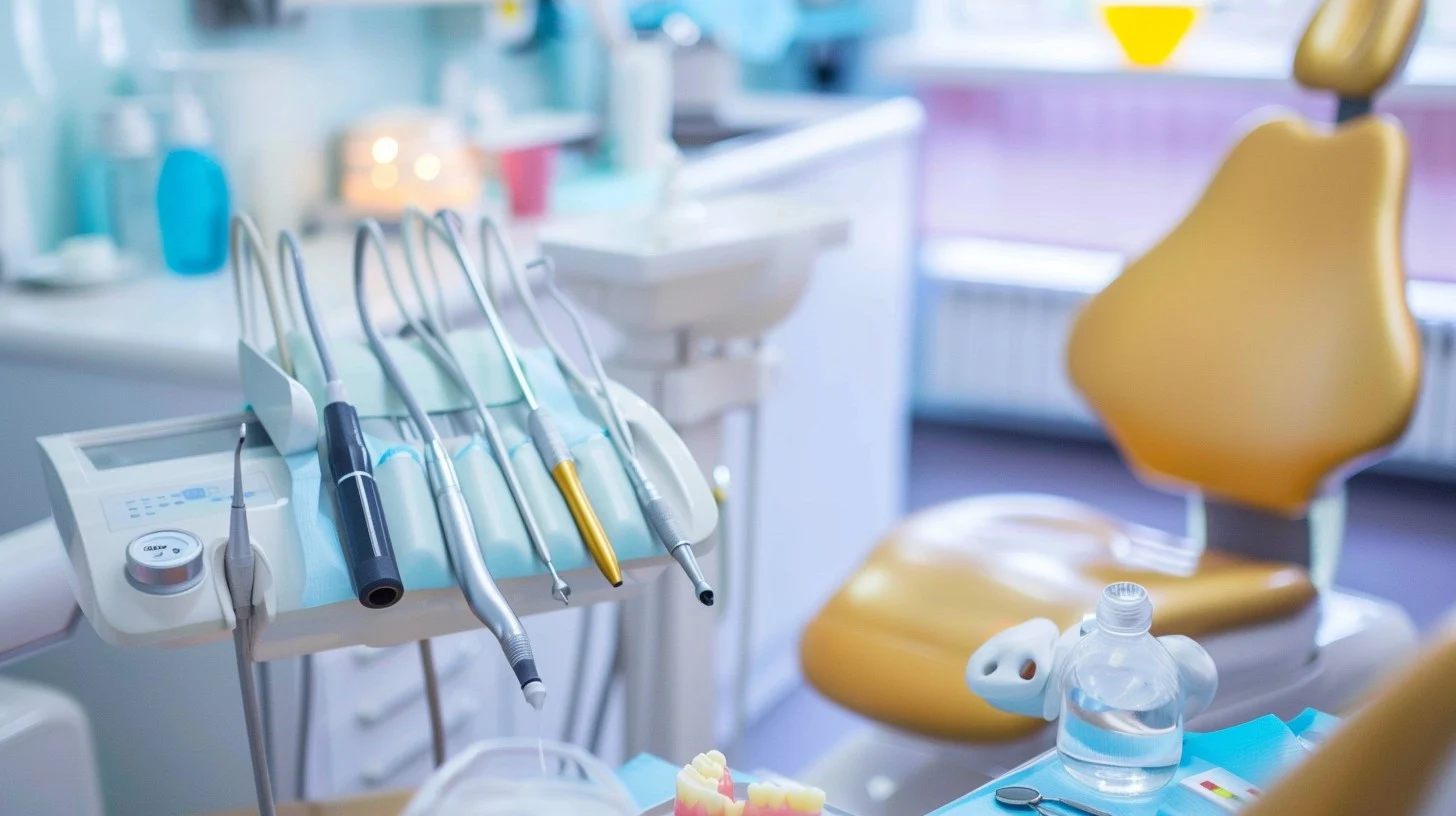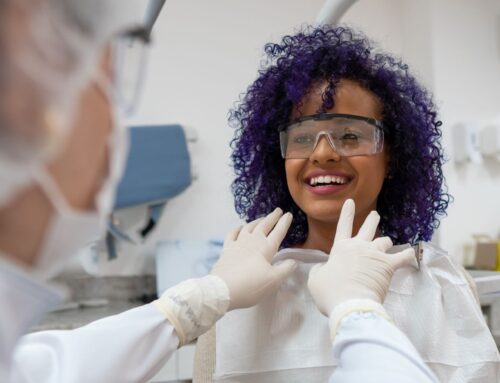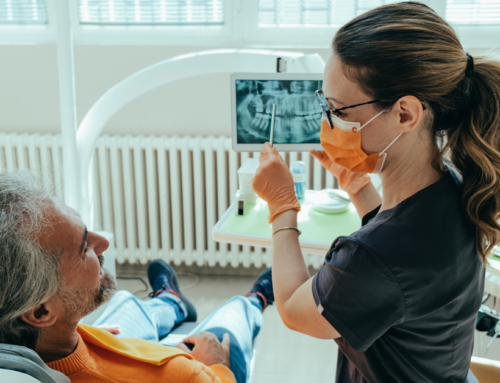Special Needs Dentistry
Comprehensive Care for Unique Needs
Special needs dentistry is a specialized field of oral health care dedicated to individuals with physical, medical, developmental, or cognitive conditions that necessitate modifications to standard dental procedures. The goal is to provide compassionate and tailored care, ensuring that every patient, regardless of their unique challenges, receives the oral health care they need.
Common Challenges in Special Needs Dentistry
Patients with special needs often encounter obstacles in maintaining optimal oral health. Understanding these challenges is crucial for dental professionals and caregivers to provide effective care.
Communication Difficulties
Some patients may have limited verbal communication abilities, making it challenging to express discomfort, pain, or specific needs. Nonverbal cues and alternative communication methods become essential tools in these cases.
Sensory Sensitivities
Patients with heightened sensory sensitivities may find the sounds, smells, and sensations of a dental office overwhelming. Bright lights, the sound of drills, or even the texture of gloves can trigger distress.
Physical Limitations
Conditions such as cerebral palsy, muscular dystrophy, or other physical disabilities can limit mobility and make positioning a dental chair difficult. Customized equipment and techniques are often required.
Behavioural Issues
Patients with development disorders like autism spectrum disorder (ASD) may exhibit behavioural challenges during dental visits, including difficulty sitting still or heightened anxiety.
Medical Complexities
Chronic illnesses or medical conditions such as epilepsy, heart disease, or bleeding disorders require careful consideration during treatment to avoid complications.
Anxiety and Fear
Fear of dental procedures is common, but for patients with special needs, this anxiety can be significantly heightened, leading to the avoidance of essential care.
Preparing for Dental Visits
For Patients and Caregivers
Preparation is key to ensuring a smooth and stress-free dental visit for patients with special needs.
- Establish a Dental Clinic Early – Ideally, children should visit a dentist by 12 months of age to build familiarity and establish a foundation for lifelong oral care.
- Pre-Visit Questionnaires – Providing detailed information about the patient’s specific needs, preferences, and medical history allow the dental team to prepare adequately ahead of the appointment.
- Desensitization Techniques – Gradual exposure to the dental environment through pre-visit tours or brief introductory appointments can help to reduce anxiety or stress during the actual appointment.
- Comfort Items – Bringing their favourite toys, blankets, or music can provide a sense of familiarity and comfort during the appointment.
How We Prepare
Our team at Georgian Dental take several steps to ensure a welcoming and accommodating environment.
- Review Patient Information – Our team familiarizes ourselves with your patient history, preferences, and potential challenges before your visit.
Different Treatment Approaches
Delivering effective care to patients with special needs requires a blend of behaviour management, specialized tools, and tailored strategies.
Behaviour Management Techniques
- Tell-Show-Do Method – We explain each step of the procedure, demonstrate it, and then perform it to build trust and reduce fear.
- Positive Reinforcement – Praise and rewards can encourage cooperation and create a positive association with dental visits.
- Distraction Techniques – Tools like stress balls, visual aids, or music can divert attention from potentially distressing procedures.
- Visual Schedules and Social Stories – Using pictures or stories to outline the appointment sequence can help patients understand and anticipate what will happen.
Specialized Equipment and Modifications
- Wheelchair-Accessible Dental Chairs – Allow patients to remain in their wheelchairs during treatment if necessary.
- Mouth Props and Supportive Devices – Ensure patient comfort and safety during procedures.
- Adapted Oral Hygiene Aids – Customized toothbrushes and flossing devices can help patients maintain optimal oral hygiene at home.
Sedation and Anesthesia Options
For patients with severe anxiety or complex needs, sedation can help make the dentist appointment go smoother and reduce unnecessary stress.
- Nitrous Oxide – A mild sedation that helps reduce anxiety and discomfort.
- Oral Sedation – Medication taken before the appointment to promote relaxation.
- Intravenous Sedation – Administered during the procedure for deeper sedation.
- General Anesthesia – Used for extensive procedures or when other methods are insufficient to keep the patient safe and comfortable.
Preventative Care Strategies
Preventing dental issues is critical for patients with special needs, as various treatments can be more complicated. Comprehensive preventive care reduces the likelihood of complications and promotes overall oral health.
Individualized Oral Hygiene Programs
We try to tailor oral hygiene routines to suit a patient’s ability and needs. Adaptive tools, such as electric toothbrushes with ergonomic handles or flossing devices with extended grips can make daily care easier for patients and caregivers. Teaching proper techniques through hands-on demonstration helps to ensure consistency at home.
Frequent Dental Check-Ups
Patients with special needs may benefit from more frequent check-ups than the general population. Regular visits allow for early detection of potential issues, such as cavities or gum disease, which can progress rapidly if left untreated. These appointments also reinforce positive habits and familiarity with the dentist’s office.
Fluoride Treatments and Dental Sealants
Fluoride strengthens enamel and prevents decay, while dental sealants provide a protective barrier on molars, which are prone to cavities. Incorporating these preventative measures into routine care is particularly beneficial for patients who struggle with oral hygiene maintenance.
Dietary Counseling
Diet plays a significant role in oral health. Educating patients and caregivers about the important of reducing sugary snacks and beverages, while incorporating tooth-friendly options such as fruits, vegetables, and dairy products is very important. During the counseling, we can provide practice meal-planning tips and alternatives to sugary treats that help empower caregivers to make healthier choices.
Customized Oral Hygiene Plans
For patients with limited dexterity or other challenges, customized care plans can include:
- Using toothbrushes with timers or music to encourage thorough brushing.
- Introducing mouthwash with specific formulations to combat dry mouth or plaque buildup.
- Offering guidance on alternative cleaning methods, such as water flossers.
Caregiver Education
Caregivers play a pivotal role in maintaining the oral health of patients with special needs. Training sessions on brushing techniques, identifying early signs of dental issues, and managing specific conditions ensure they are well-equipped to provide ongoing care. Empowering caregivers with knowledge helps bridge the gap between dental visits.
Collaboration and Coordination
Effective dental care for special needs patients often involves collaboration between various parties.
Caregiver and Support Networks
Involving caregivers in treatment planning ensures continuity of care and reinforces oral hygiene practices at home.
Medical Professionals
Coordinate with physicians, therapists, and other healthcare providers to address the patient’s overall health needs and ensure safe dental procedures.
Multidisciplinary Approaches
When necessary, involve specialists such as orthodontists, periodontists, or anesthesiologists to provide comprehensive care.
Training and Education
Education and awareness are vital for improving the quality of care for patients with special needs.
For Dental Professionals
Ongoing training in special needs dentistry helps practitioners stay informed about best practices, new techniques, and emerging tools.
For Caregivers
Providing caregivers with training on oral hygiene techniques ensures that patients receive consistent care at home.
Community Outreach
Raising awareness through community programs can education the public about the importance of special needs dental care and available resources.
Transitioning to Adult Care
As patients age, transitioning to adult dental services is crucial to maintaining oral health.
- Plan Ahead – Begin discussing the transition during adolescence to ensure a smooth shift to adult care.
- Continuity of Care – Share detailed medical histories and treatment plans with the new dental team.
Advocacy and Access
Improving access to special needs dental care requires collective advocacy and policy changes.
- Policy Promotion – Advocate for policies that address barriers such as insurance limitations and lack of specialized dental facilities.
- Transportation Solutions – Work with community organizations to provide transportation for patients who face mobility challenges.
- Financial Support – Explore funding options, grants, or sliding-scale fees to make dental care affordable.
Why Choose Georgian Dental for Special Needs Dentistry?
Georgian Dental is committed to providing exceptional care for patients with special needs, combining expertise, compassion, and a tailored approach to meet diverse requirements.
- Specialized Training and Expertise
Our team undergoes continuous training in special needs dentistry, ensuring we stay up to date on the latest techniques, tools, and best practices. We are equipped to handle a wide range of conditions with professionalism and care.
- Personalized Care Plans
We take the time to understand each patient’s unique needs, preferences, and challenges. From pre-visit consultations to tailored treatment plans, our approach prioritizes the comfort and well-being of every individual.
- Sensory-Friendly Environment
Our clinic is designed to be welcoming and accommodating, with adjustments such as dimmed lighting, quiet treatment areas, and sensory-friendly tools to help create a calming atmosphere.
- Comprehensive Preventive Care
We emphasize prevention through regular check-ups, individualized oral hygiene plans, and dietary counseling, helping patients maintain optimal oral health avoid complications.
- Collaborative Approach
We work closely with caregivers, medical professionals, and support networks to ensure comprehensive care. Our multidisciplinary approach addresses both dental and overall health needs.
By addressing these aspects of dental care, dental professionals and caregivers can create an inclusive environment that prioritizes the unique needs of individuals with special needs. Through collaboration, education, and compassion, we can ensure that oral health care is effective for all.
- Commitment to Accessibility
At Georgian Dental, we strive to eliminate barriers to care. From wheelchair-accessible facilities to flexible scheduling and financing options, we aim to make dental care accessible for all.
Choosing Georgian Dental means choosing a trusted partner dedicated to enhancing the oral health and quality of life for patients with special needs. Contact us today to learn more about our services and schedule an appointment.
Appointment Request
If you’re interested in any of our procedures, and would like to meet with one of our dentists to discuss options, costs and get additional information, complete this short form and we’ll give you a call to arrange for a no-obligation appointment at our Barrie clinic.










